Search
Search Results
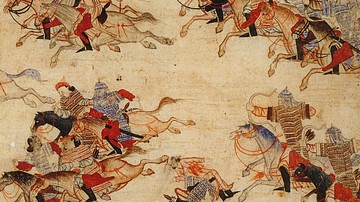
Definition
Mongol Empire
The Mongol Empire (1206-1368) was founded by Genghis Khan (r. 1206-1227), first Great Khan or 'universal ruler' of the Mongol peoples. Genghis forged the empire by uniting nomadic tribes of the Asian steppe and creating a devastatingly effective...
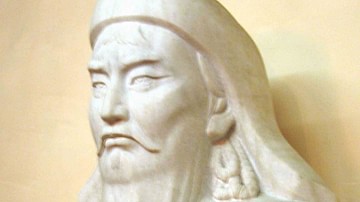
Definition
Genghis Khan
Genghis Khan (aka Chinggis Khan) was the founder of the Mongol Empire which he ruled from 1206 until his death in 1227. Born Temujin, he acquired the title of Genghis Khan, likely meaning 'universal ruler’, after unifying the Mongol tribes...
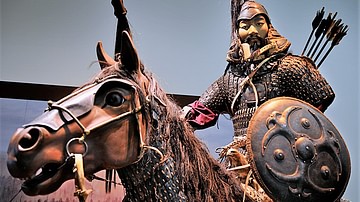
Definition
Mongol Warfare
The Mongols conquered vast swathes of Asia in the 13th and 14th century CE thanks to their fast light cavalry and excellent bowmen, but another significant contribution to their success was the adoption of their enemies' tactics and technology...
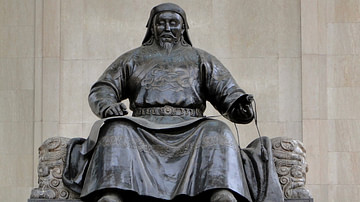
Definition
Kublai Khan
Kublai Khan (Qubilai-Qan) was the ruler of the Mongol Empire from 1260 to 1294. His accomplishments include establishing Mongol rule in China under the name of the Yuan Dynasty (1271-1368), thus becoming the first non-Chinese to rule the...
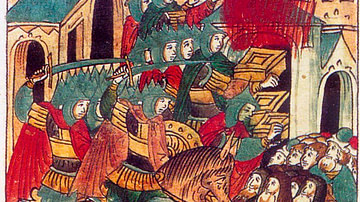
Article
The Mongol Invasion of Europe
The Mongol invasions of Russia and Eastern Europe occurred first with a brief sortie in 1223 CE and then again in a much larger campaign between 1237 CE and 1242 CE. The Mongols, seemingly coming from nowhere and quickly gaining a reputation...
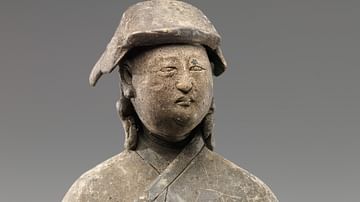
Definition
Yuan Dynasty
The Yuan Dynasty was established by the Mongols and ruled China from 1271 to 1368 CE. Their first emperor was Kublai Khan (r. 1260-1279 CE) who finally defeated the Song Dynasty which had reigned in China since 960 CE. Stability and peace...
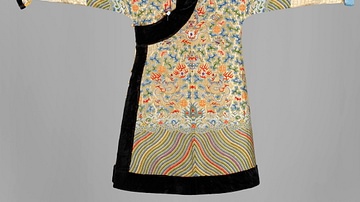
Article
Clothing in the Mongol Empire
The clothing worn by the Mongols in the 13th and 14th century CE, like most other aspects of their culture, reflected their nomadic lifestyle in the often harsh climate of the Asian steppe. Typical items included felt hats, long jackets with...
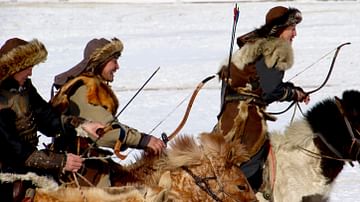
Article
The Nerge: Hunting in the Mongol Empire
The peoples of the Mongol Empire (1206-1368 CE) were nomadic, and they relied on hunting wild game as a valuable source of protein. The Asian steppe is a desolate, windy, and often bitterly cold environment, but for those Mongols with sufficient...
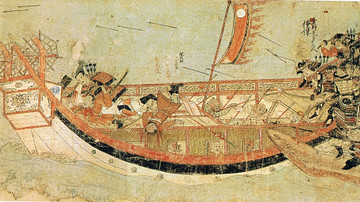
Article
The Mongol Invasions of Japan, 1274 & 1281 CE
The Mongol invasions of Japan took place in 1274 and 1281 CE when Kublai Khan (r. 1260-1294 CE) sent two huge fleets from Korea and China. In both cases, the Japanese, and especially the samurai warriors, vigorously defended their shores...
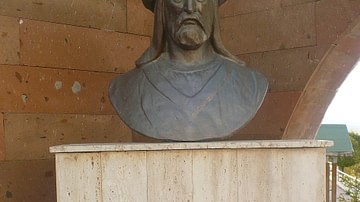
Definition
Batu Khan
Batu Khan (l. 1205-1255 CE) was a grandson of Genghis Khan and the founder of the Golden Horde. Batu was a skilled Mongol military commander and won battles from China to Persia, although his most famous exploits involve the grand Mongol...